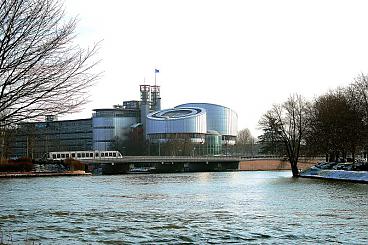Boxing judges
Boxing judges

This week we in the Netherlands are mostly concerned with the struggle to win seats in the coming election for the regional asaemblies – the Provinciale Staten. Those elected will in turn will vote for the indirectly elected Senate, but at European level another battle is raging – in this case between judges. The EU’s own European Court of Justice (ECJ), doesn’t want to take a back seat to the Council of Europe’s European Court of Human Rights (ECHR) when the European Union accedes to the European Convention on Human Rights, the body responsible for the interpretation and application of the Convention. A bit childish, if you ask me. But it’s also remarkable, insofar as the ECJ judges seem to be perfectly relaxed about their powers being undermined by the so-called arbitrage committees included in ever more trade treaties. Why aren’t they protesting against the Transatlantic Trade and Investment Partnership (TTIP) with the United States, which will override not only national courts but the ECJ’s justices as well, should a multinational corporation decide that its investments are suffering as a result of a country’s government’s policies?
One of the conditions for EU membership is accession to the European Convention on Human Rights, a treaty administered by the Council of Europe, which almost all of the continent’s states have ratified, guaranteeing the human rights of their people. The European Union is not yet, however, party to the Convention, so if one of the EU’s own institutions does something wrong, the Convention and its protective measures don’t apply. The Treaty of Lisbon specifies that the EU must itself ratify the Convention and thus come under the jurisdiction of the ECHR.
This is now on the agenda, as the European Commission, the European Parliament and all of the EU’s member states have worked hard on a draft agreement on accession to the Court of Human Rights. Just before Christmas the ECJ, however, issued a negative opinion on the matter, on the grounds that the draft agreement breached the ‘autonomy’ of the EU’s legal order. What they mean is that the ECJ’s justices could learn a thing or two from their colleagues at the ECHR and don’t fancy doing so.
For many of the objections raised by the judges solutions can be found, but what really astonishes me is that they have presented an official opinion at all on this matter, but that they have not been involved in the least with the negotiations on trade treaties in which in which nowadays there is invariably a section on dispute resolution. Because national courts aren’t sufficiently trusted by investor, the multinationals want their own arbitrage mechanisms. Dutch Trade Minister Lilianne Ploumen recently stated that she was in favour of establishing an International Court of Arbitration. All the more reason for the ECJ judges to get out their banners and join the demonstrations against this new generation of trade treaties. Yet it’s completely silent down at the Court’s seat in Luxembourg.
I would like to see Dutch European Commissioner Frans Timmermans asking the Luxembourg judges to give their advice on, for example, the TTIP and the equivalent treaty with Canada. And if he doesn’t do that off his own bat, then we in the European Parliament must pressure him into doing so. This could yet turn out well.
- See also:
- Dennis de Jong
